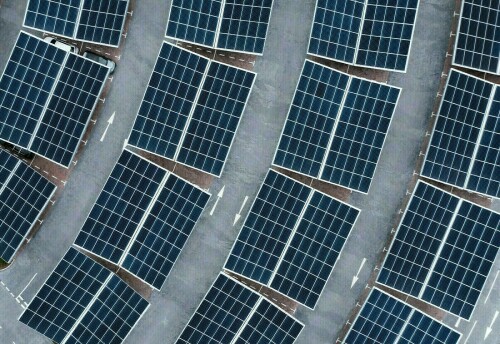Senate Committee Rejects Tax on Imported Solar Panels
The Senate Standing Committee on Finance and Revenue voiced its opposition on Tuesday to the government’s announcement of an 18% tax on imported solar panels. The committee called for the immediate reversal of the proposal, which was introduced by the Finance Minister Muhammad Aurangzeb during his budget 2025-26 address last week.
Aurangzeb presented the budget for the fiscal year 2025-26 on June 10, outlining the government’s plan to levy an 18% sales tax on imported solar panels. He contended that this measure would bolster the local industry.
However, the Senate panel strongly disagreed with the proposal during Tuesday’s session, which was presided over by Senator Saleem Mandviwalla. The meeting was attended by key figures, including Finance Minister Muhammad Aurangzeb, Minister of State for Finance Bilal Azhar Kayani, Chairman FBR Rashid Mahmood Langrial, and high-ranking officials from relevant departments.
According to a statement released by the Senate Secretariat, “The committee firmly advocated for the withdrawal of the proposed 18% GST on solar panels. Members noted that certain stakeholders had imported and stockpiled solar equipment before the budget, anticipating the tax increase. The chairman underscored the discriminatory nature of the action, stating that the committee rejects the sudden imposition of GST on solar imports and demands its immediate cancellation.”
Sources indicate that a similar discussion transpired during the National Assembly’s Standing Committee on Finance and Revenue meeting on Tuesday. However, an official statement from the NA is still pending.
Earlier, Sindh Chief Minister Murad Ali Shah also criticized the federal government’s plan to impose an 18% tax on solar panels, deeming it “unjustified.”
He presented the provincial budget for the fiscal year 2025-26 on Friday, with a total budget of Rs3.45 trillion, which is a 12.9% increase compared to the previous year’s estimated Rs3.05 trillion (2024-25).
During his budget address, Murad Ali Shah stated, “This budget will be instrumental in unlocking Sindh’s untapped potential,” adding, “It prioritizes inclusive, sustainable, and robust development.”
In a post-budget press briefing on Saturday, the chief minister cautioned that the Pakistan People’s Party (PPP) would withdraw its support for the federal budget if such restrictive measures, like the tax on imported solar panels, were not revoked.
Pakistan is quickly becoming a significant player in solar power implementation, not just among emerging economies. Data from Ember reveals that the nation has increased its solar electricity generation by more than three times the global average this year, driven by a more than fivefold increase in solar capacity imports since 2022.
This rapid growth in capacity and generation has propelled solar power from Pakistan’s fifth-largest electricity source in 2023 to its largest in 2025.
Furthermore, a recent study indicated that China exported more solar panels to Pakistan than to numerous G20 countries, with imports exceeding 16 gigawatts (GW) in 2024 alone.
The report, entitled ‘Leader of One or Leader of None – China’s Choice for Clean over Coal in Pakistan’ and published by the think tank Renewables First, stated that over 39GW of solar panels, primarily from China, have been imported into Pakistan over the past five years.



Comments (0)
No comments yet. Be the first to comment!
Leave a Comment